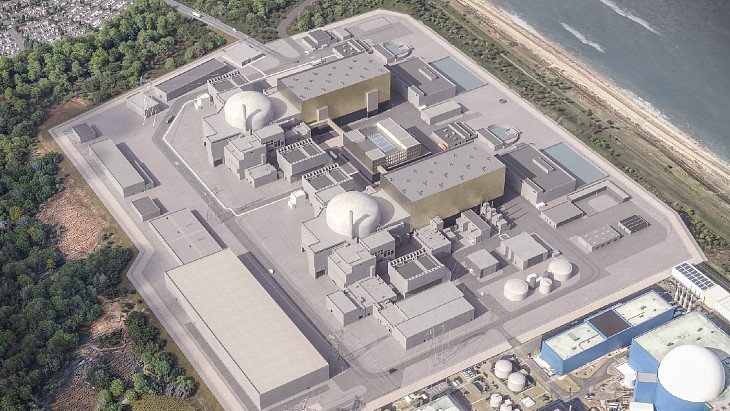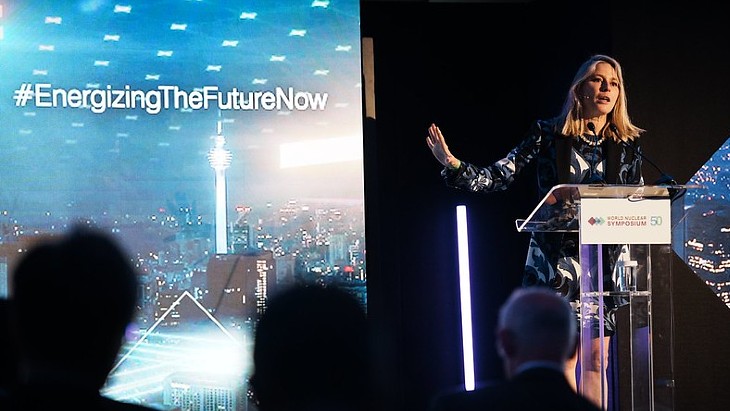Westinghouse filed the case on 21 October last year with the District Court for the District of Columbia. The suit claimed that the APR1400 design includes intellectual property licensed by Westinghouse and requires its permission before being transferred to other countries considering deploying the design.
The APR1400 is an evolutionary pressurised water reactor with its origins in the CE System 80+ design, which Westinghouse acquired in 2000. Principally designed by Korea Engineering Company, it produces 1400 MWe and has a 60-year design life. It supersedes the standardised 995 MWe OPR-1000 design, of which South Korea built 12. The APR1400 features improvements in operation, safety, maintenance and affordability based on accumulated experience as well as technological development.
In its lawsuit, Westinghouse said KHNP and KEPCO needed its support to comply with US laws restricting nuclear power technology sharing. Under these rules - known as Part 810 requirements - the US Department of Energy must approve the sharing of certain technologies with other countries. Part 810 sets out regulations governing the transfer of technology for development, production or use of nuclear reactors, equipment and materials.
In response, KHNP filed countersuits in the USA calling for Westinghouse to withdraw the case. It claimed that the US Atomic Energy Act grants authority to enforce the law exclusively to the US Attorney General and not to entities as a means of claiming rights through litigation.
In an 18 September ruling, the District Court for the District of Columbia accepted the defendants' argument and dismissed the case.
"The court holds that Westinghouse lacks a private cause of action to enforce Part 810 and therefore has failed to state a claim," the ruling read.
"Westinghouse's dispute with KEPCO/KHNP crosses multiple jurisdictions and covers two issues: compliance with US nuclear technology export control requirements; and KEPCO/KHNP's long-standing obligations to comply with Westinghouse's intellectual property rights that they agreed to contractually," said David Durham, President, Energy Systems, Westinghouse. "The use of Westinghouse intellectual property outside of Korea is the principal dispute between the parties.
"The decision by the US District Court merely holds that export control enforcement resides with the US government. Westinghouse intends to appeal the decision. The decision has no bearing on the ongoing arbitration proceeding against KEPCO/KHNP involving KEPCO/KHNP's non-allowed transfer of Westinghouse's intellectual property outside Korea. Westinghouse is committed to protecting our intellectual property and we fully expect to be successful in the arbitration on all issues."
He noted that the arbitration panel has confirmed that a final ruling is not expected until late 2025.
Under a USD20 billion deal announced in December 2009, four Korean-designed APR1400 reactors have been built at the Barakah site in the UAE by a consortium led by KEPCO. The first three of these units were connected to the grid in August 2020, September 2021 and October 2022, respectively.
On 28 October 2022, Poland's Prime Minister Mateusz Morawiecki announced that Westinghouse had been selected for the first part of the country's six-reactor plan to build up to 9 GWe of capacity by 2040.
On 31 October last year, Poland's Ministry of State Assets, South Korea's Ministry of Trade, Industry and Energy, ZE PAK, PGE and KHNP signed a letter of intent to develop plans for a nuclear power plant consisting of at least two Korean-supplied APR1400 reactors in Pątnów.

.jpg)



_55530.jpg)
_42372.jpg)
_37521_70699.jpg)

_76087_55556.jpg)




